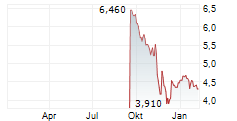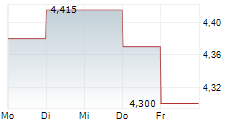Message from CEO
IBT continues preparations for the launch of IBP-9414, a drug that can prevent the serious medical consequences of NEC in premature infants. These consequences can be divided into three different courses.
The most favorable course is that the child recovers from NEC, even though they feel unwell during the period of illness. The fact that they cannot be fed enterally (through the mouth) means an increased risk of other serious complications such as sepsis (blood poisoning). Children who suffer from this milder and reversible form of NEC may experience long-term consequences as their development is inhibited during the period of illness.
In another course of events, the disease poses an acute threat to life. Doctors must operate, and often there is no other option than to remove a large part of the child's small intestine. When this happens, NEC has seriously affected the children for the rest of their lives. Living with a short bowel is highly debilitating and represents the primary cause of SBS (short bowel syndrome).
The third scenario, the worst possible outcome, is that doctors are unable to save children affected by NEC. The children die, which happens relatively often as NEC is one of the most common causes of death in premature babies.
Depending on how developed the child is at birth, the course of the disease varies, but roughly speaking, about 50% of children recover without surgery, 25% of children require surgery, and the remaining 25% of children die.
In March 2025, the FDA granted IBT's drug project IBP-9414 "Breakthrough Therapy Designation" for "gastrointestinal-related mortality." IBT received Breakthrough Therapy Designation because data from our study program shows that IBP-9414 reduces the risk of death in children and that children do not require surgery to the same extent after administration of IBP-9414 compared to placebo. We are therefore seeing a clear effect on the most medically important outcomes, and the results relating to higher survival rates are naturally a source of hope for treating physicians, children and their parents, as well as for IBT as a company.
As the FDA has undertaken to review IBT's clinical data from Phase II and Phase III, all available information was submitted to the FDA in April and May. In June, the FDA also received information relating to preclinical and clinical studies based on existing literature as a basis for the probable medical reason why IBP-9414 works as a preventive treatment for NEC and the consequences of NEC. The FDA is currently reviewing the large amount of information submitted by IBT and normally requires 12 months to review the material prior to approving a drug. Our project has "Breakthrough Therapy Designation" and we therefore hope that the time can be significantly reduced. During the summer months, we have therefore asked the FDA how far they have come and whether any questions have arisen during the review process. We expect to receive initial feedback in September. My hope is that we will then be able to set a date for the completion of the review, i.e., gain greater clarity on when we can launch IBP-9414.
In parallel during Q2, IBT has also continued to work on manufacturing-related matters. We have successfully validated all but one of the analytical methods. The last analytical method should be fully validated in October. We plan to begin validation of the process we use for manufacturing at our manufacturers as soon as we have completed the validation of the analytical methods.
As our Phase 3 study has been completed and reported to the FDA, IBT has further intensified its work to prepare for the launch of IBP-9414. This means new challenges; we need new knowledge and new professional resources for the work and challenges that arise in connection with the launch of a drug. During Q2, IBT has therefore said goodbye to several of the highly skilled employees who carried out the study in order to free up financial resources for marketing preparations. We are restructuring IBT for the future without necessarily increasing costs. IBT has hired Nigel Titford as Head of Business Development, whose task is to ensure that IBT has the best possible sales and distribution channels for IBP-9414. Nigel has extensive experience in similar roles at Biogaia and will bring important expertise to IBT. During Q2, discussions were held with potential partners regarding sales and distribution for several regions.
IBT will continue to be cautious with spending in order to be able to manage factors that are beyond the company's control. In the news, a number of developments could affect IBT, such as changes in the FDA's leadership. However, we are confident that everyone, regardless of political views, wants children in the future to have access to important and effective treatments for life-threatening diseases. We are also continuing our communication efforts. For example, I plan to participate and present "outcomes from IBP-9414 use in preterms" at the NEC Society meeting in Chicago in September.
Finally, I would like to thank everyone at IBT, who are currently working intensively on the regulatory documentation for the authorities. Special thanks for continuing the work even during the summer months.
Stockholm 19 August 2025
Staffan Strömberg, CEO
Financial overview for the period
Second quarter (April - June) 2025
- Net sales KSEK 0 (0)
- Operating income KSEK -20,126* (-44,279)
- Earnings per share before and after dilution SEK -1.42 (-3.17)
Reporting period (January - June) 2025
- Net sales KSEK 0 (0)
- Operating income KSEK -37,621* (-74,077)
- Earnings per share before and after dilution SEK -2.67 (-5.23)
*Operating profit includes exchange rate effects on currency investments intended to secure future payments. During the second quarter, these amounted to KSEK 465 (-1,150) and during the reporting period to KSEK -3,187 (4,173).
Significant events during the second quarter (April - June)
- On May 8, IBT announced that the Clinical Study Report (CSR) for "The Connections Study" had been submitted to the FDA. The report contains data from the Phase 3 clinical trial that was completed in 2024.
Significant events during the reporting period (January - June)
- On March 28, 2025, IBT announced that the FDA had granted IBP-9414 "Breakthrough Therapy Designation" for its potential to reduce gastrointestinal-related mortality.
Summary of selected financial data
| 000's | 2025 | 2024 | 2025 | 2024 | 2024 |
| Apr-Jun | Apr-Jun | Jan-Jun | Jan-Jun | Jan-Dec | |
| Net Sales | - | - | - | - | - |
| Other income | - | - | - | 5 | 4 |
| Operating profit / loss | -20,126 | -44,279 | -37,621 | -74,077 | -145,343 |
| Result after tax | -19,172 | -42,675 | -35,911 | -70,489 | -136,905 |
| Total assets | 193,232 | 296,444 | 193,232 | 296,444 | 239,566 |
| Cash flow for the period | -15,906 | -35,959 | -43,885 | -60,726 | -111,120 |
| Cash flow per share for the period (SEK) | -1.18 | -2.67 | -3.26 | -4.51 | -8.25 |
| Cash | 176,317 | 272,510 | 176,317 | 272,510 | 223,388 |
| Earnings per share before and after dilution (SEK) | -1.42 | -3.17 | -2.67 | -5.23 | -10.16 |
| Equity per share (SEK) | 9.97 | 17.57 | 9.97 | 17,57 | 12.64 |
| Equity ratio (%) | 70% | 80% | 70% | 80% | 71% |
Contacts
Staffan Strömberg, CEO
Maria Ekdahl, CFO
info@ibtherapeutics.com
+46 76 219 37 38
About Us
Infant Bacterial Therapeutics AB ("IBT") is a public company domiciled in Stockholm. The company's Class B shares are since September 10, 2018, listed on Nasdaq Stockholm (IBTB).
IBT is a pharmaceutical company whose purpose is to develop and commercialize drugs for diseases affecting premature babies. During the 12 years of drug development IBT has gained unique expertise in the field of drugs using live bacteria as active substances. This is a key competitive factor for our development programs.
IBT's main focus is the drug candidate IBP-9414, a formulated bacterial strain naturally found in human breast milk. IBP-9414, is expected to be the first product in the new class of biologics called "Live Biotherapeutic Products" for premature infants. The drug development of IBP-9414 is currently in its final stages for this important product for premature babies.
The portfolio also includes additional drug candidates, IBP-1016, IBP-1118 and IBP-1122. IBP-1016, for the treatment of gastroschisis, a life-threatening and rare disorder in which children are born with externalized gastrointestinal organs. IBP-1118 to prevent retinopathy of prematurity (ROP), one of the leading causes of blindness in premature babies, and IBP-1122 to eliminate vancomycin-resistant enterococci (VRE), which cause antibiotic-resistant hospital infections.
Through the development of these drugs, IBT can address medical needs where no sufficient treatments are available.
This information is information that Infant Bacterial Therapeutics is obliged to make public pursuant to the Securities Markets Act. The information was submitted for publication, through the agency of the contact persons set out above, at 2025-08-20 08:00 CEST.


